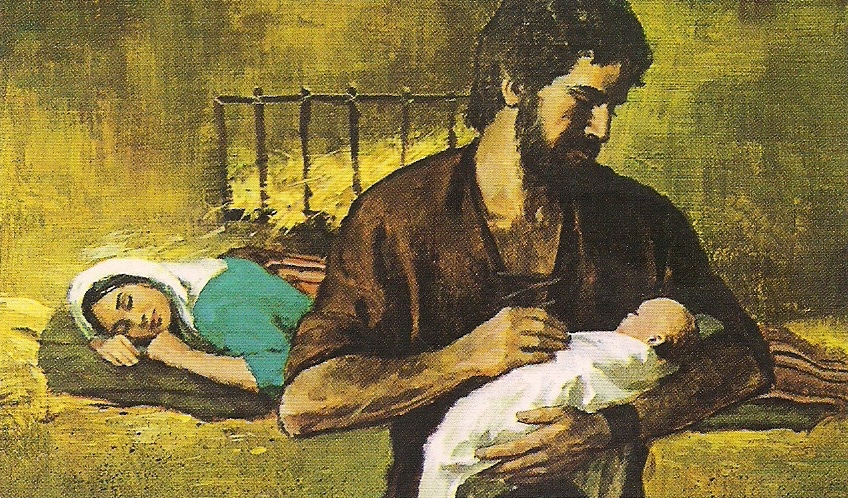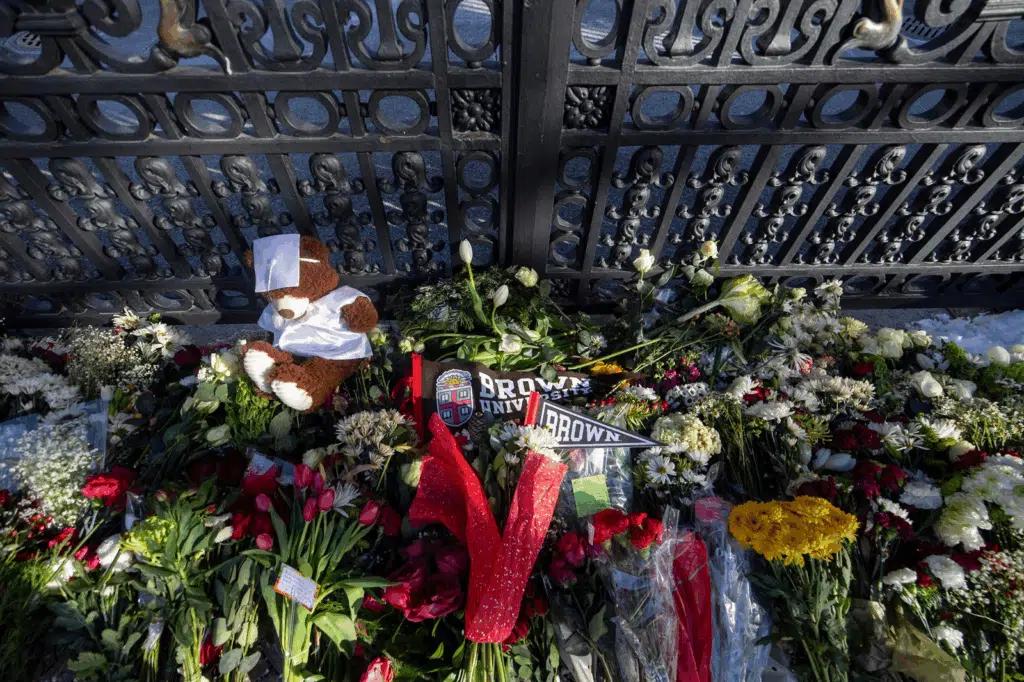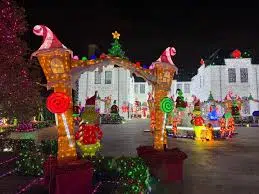
MARCH 19: St Joseph and the Importance of the Nuclear Family
(Published as part of my book Dear John, released in 2020)
Picks up in the middle of a chapter….
And it’s because all of this, every single bit of it, ultimately, is about Jesus Christ the Lord.
On to Joseph. One of the most maddening aspects of the Fatima story is that his appearance is rarely, if ever, mentioned. I had completely forgotten about a little book titled St Joseph, Fatima and Fatherhood I’d obtained years ago, about the significance of his appearance with the Child Jesus and Mary on October 13, 1917, the last of six dates Mary appeared to the three children in the small village in Portugal.
You would think that would be pretty significant. Especially since he appeared in direct conjunction with the infamous Miracle of the Sun event.
Then again, I don’t think I ever actually read the book, so its contents were something I should have known long ago. It is one of those little opportunities we miss in life that would fortunately come back around for me.
There are two crucial aspects of this final Fatima apparition on which to reflect. First, there is the docile scene of Joseph holding the Child standing to the left of the sun and blessing the world, while the Virgin Mary is standing to the right of the sun; secondly, there is the unmistakable miracle Mary had promised the children months before—an erratic, spinning crash of the sun toward Earth witnessed by 70,000 spectators who, of course, thought the end of the world was upon them. In this second event, the members of the Holy Family are not visible anymore.
These two events may seem wholly disjointed at first glance. Indeed, before I became acquainted with Joseph’s presence at Fatima just last week, the Miracle of the Sun seemed more a major sign than anything—a sign promised by Mary so that the multitudes would believe the children’s story going back to May 13. But the reality of Joseph, and him holding the Child no less, is so abundantly important that it defies understanding as to why his part of the story is left out of so much of the literature.
Sister Lucia described the appearance in her Memoirs: “After Our Lady had disappeared into the immense distance of the firmament, we beheld St Joseph with the Child Jesus and Our Lady robed in white with a blue mantle, beside the sun. St Joseph and the Child Jesus seemed to bless the world, for they traced the Sign of the Cross with their hands.”
RELATED ARTICLE
Hey Coach Landry, Take Us Home
In this consecration, I have learned much concerning the deference of Mary to Joseph. The truth that Fatima seems to point to is that this deference is not only an act of her will, but more importantly an act of God’s will. It is Joseph and the Child blessing the world in the first part of the apparition, not Mary. This would seem to put Joseph on a pedestal enough to imply his superior holiness, but the truth is the exact opposite; it is this fact—that Mary and Jesus both hold more rank in holiness than Joseph—that makes this blessing, this clear fatherly authority in the family, evidence that Joseph’s power is willed by God the Father himself.
Consider Scripture. God sends the angel Gabriel at the Annunciation to announce the conception, by the Holy Spirit, of the Messiah in Mary’s womb. Yet, despite Mary’s immaculate conception and Joseph’s natural conception, the angel would appear to Joseph in a dream four times when it came time to protect the family. The first time was to assure him that Mary, to whom he was already betrothed, was in fact still a virgin and that it was by the Holy Spirit that she was with child (Mt 1:19-20). This is sometimes known as the Annunciation of Joseph.
The second dream was to warn Joseph to take the Child and his Mother to Egypt to avoid Herod’s murderous plot (Mt 2:13). The third was to inform him that those who meant to kill the Child were now dead, and that he could return the family to the land of Israel (Mt 2:19-21).
The fourth dream, in my opinion, perhaps shows the agency and authority of Joseph more than any other—even to the level handed over by God the Father himself. In the immediate verse following the above, where the angel directs Joseph to take the family back to Judea, a strange thing occurs. This verse states, after Joseph had indeed taken the family back to Israel, “But hearing that Archelaus reigned in Judea in the room of Herod his father, he was afraid to go thither; and being warned in sleep retired into the quarters of Galilee. And coming he dwelt in a city called Nazareth, that it might be fulfilled which was said by the prophets: That he shall be called a Nazarene” (Mt 2:22-23).
This indeed is puzzling. Why the two dreams? When the coast finally cleared of Herod, but Herod’s son had assumed the throne, why wouldn’t God simply have his messenger instruct Joseph to go to Nazareth in the third dream? Why tell him to return home if home was so dangerous? And perhaps most convincingly, why tell him to return home if the Old Testament had prophesied that the Messiah would be called a Nazarene?
There is only one answer that also keeps intact God the Father’s omnipotence and sovereignty—God allowed Joseph, and no other, the chance to examine the landscape and make a new decision that would protect Jesus and Mary. God clearly knew of the danger in Judea, despite Herod’s death, and could very well have skipped the third dream; instead, he makes abundantly plain for anyone reading this chapter the unfailing trust he has in Joseph. He willingly hands Joseph the authority to either stay or go, and of course Joseph’s concern with Archelaus is the precipitating prayer that invites the fourth and final dream—which is God’s response to that concern, the response to that prayer.
Yahweh, I am deeply troubled by the fact that you have led us back into possible danger. But you know you have my trust, and I know you know all things. Help me protect the Child and his Mother. Guide me in thy holy and never-failing will.
Yes, Joseph, your concern is warranted, and your faith has earned you favor. The Child and his Mother are indeed still in danger. Rise now, and take them to the land of Galilee. There, you will be blessed.
It is much like what Benedict XV did back when his prayer precipitated the coming of Our Lady of Fatima. God had already decided on the response to the prayer he also inspired, which, like Joseph’s story, also included an angel. It is the miracle of a humble God helping us believe in the power of simply going to him in faith.
All for the sake of helping us believe in ourselves.
He is saying to Joseph, point blankly—I trust you.
I trust you with my very own Son and his Mother. You protect them.
When the enemy wanted to destroy the Savior of the world, at every turn it was Joseph God sent the angel to. And Mary—the Holy Mother of God herself—submitted to him.
And she submitted because Joseph was the head of the household.
This is why the final apparition is so critical to understanding the overall message of Fatima. Leaving Joseph out of the story keeps it incomplete. It is only when Joseph is included that we find that the ultimate premonition of Fatima does not have to do with Mary alone.
It has to do with the family.
The attack on the family has been raging in the free world for decades now. Once again, the movie A Wolf in Sheep’s Clothing can shed some light on the slow, sinister creep of evil into our society, targeting, specifically, the nuclear family. It is not the destruction of America by an outside enemy, an impossibility proven through our bold victories in World Wars I and II; it is instead an inscrutable crumbling from within, just as termites destroying a house go unseen while, for a time, the exterior looks the same.
Symbolically, in the apparition, when the Holy Family is intact, the sun remains still between them. Equally symbolically, when the Holy Family is no longer seen in its entirety, it is then that the sun begins to shake and plummet toward Earth—indicating a chilling omen of what is to come if we reject the sacredness of the family. In 2008, Carlo Cardinal Caffarra, the founding president of the Pontifical John Paul II Institute for Studies on Marriage and the Family, said that Sister Lucia herself, the only one of the three children to see the entirety of the final apparition, had written to him, saying, “Father, a time will come when the decisive battle between the kingdom….
Jeff LeJeune is the author of several books, writer for RVIVR, editor, master of English and avid historian, teacher and tutor, aspiring ghostwriter and podcaster, and creator of LeJeune Said. Visit his website at jefflejeune.com, where you can find a conglomerate of content.



